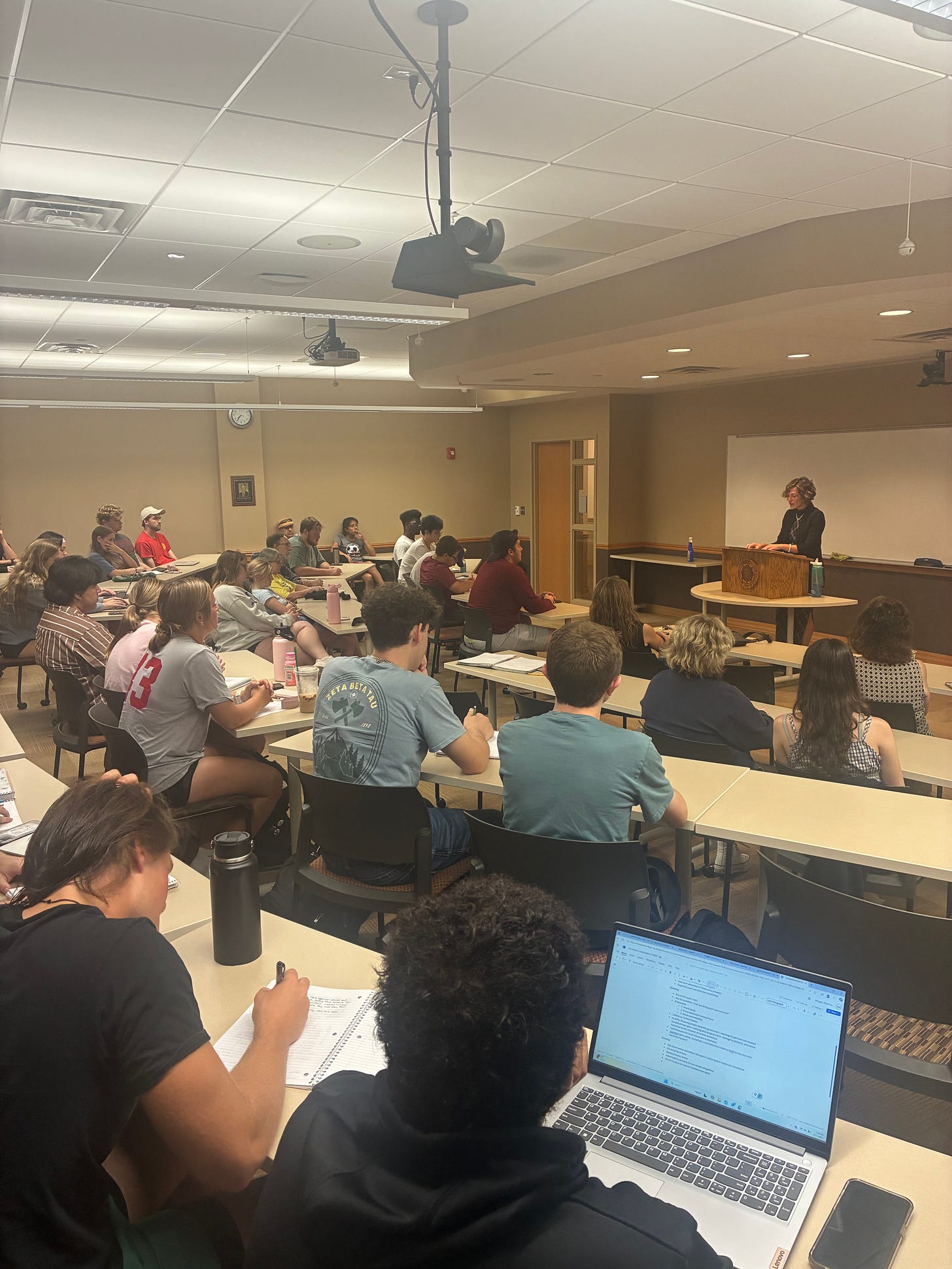Botts giving her speech. Photo by Seamus O’Sullivan
Before a packed crowd of students and faculty in the Moot Board Room, Thursday night, attorney Ashton Botts outlined how three key judicial doctrines shape U.S. Supreme Court decisions and keep the Constitution alive in modern society.
Botts, a data privacy and artificial intelligence specialist, titled her talk Living with a Living Constitution. She began by describing the doctrine of standing, which requires plaintiffs to prove injury in fact, causation, and redressability before a court will hear a case. She contrasted the 2015 Juliana v. United States climate case, where young plaintiffs failed to clear that bar, with the 2023 Biden v. Nebraska ruling that blocked federal student-loan forgiveness.
Next, Botts explained scrutiny, the three-tiered test of rational basis, intermediate, and strict scrutiny, that determines how rigorously the Court reviews government actions. She cited the Court’s recent rejection of affirmative action in college admissions as an example of strict scrutiny at work.
Her final doctrine, stare decisis, Latin for “to stand by things decided,” calls on justices to honor precedent. Botts noted that the Court’s 2022 Dobbs decision overturning Roe v. Wade marked an unprecedented break from that principle.
After the lecture, Botts fielded wide-ranging questions on law careers, constitutional interpretation, and global politics. She shared her own winding path: starting as a theater major, shifting to rhetoric and political communication, and eventually earning a law degree after a formative semester program in Washington, D.C. “To go to law school, you can study anything,” she said, encouraging students to learn how to think, not just what to think.
Botts also discussed her current work at Perceptix, a global employee-engagement firm, where she advises on European Union data privacy rules and emerging AI legislation. She contrasted the EU’s comprehensive General Data Protection Regulation with the patchwork of U.S. state laws, calling for stronger nationwide standards.
Audience questions ranged from Supreme Court partisanship to the Constitution’s ability to protect citizens in an era of rising global tensions. Botts acknowledged that politics have always influenced the Court, citing past cases from Griswold v. Connecticut to Brown v. Board of Education. “We tend to think judges were once completely impartial, and that has never been the case,” she said, adding that today’s 6–3 ideological split makes those divisions more visible.
Asked whether the Constitution could evolve in ways harmful to individual rights, Botts emphasized the importance of civic engagement. “We have a responsibility to hold institutions accountable,” she said, explaining that amendments and new interpretations, such as the long-sought Equal Rights Amendment, remain possible.
The evening ended with a discussion of the Court’s “shadow docket,” including a recent decision allowing Immigration and Customs Enforcement to consider factors such as language and workplace when making enforcement choices. Botts clarified that the ruling was preliminary and may return to the Court on the merits.
Through it all, she reminded students that legal careers, like the Constitution itself, can take unexpected turns. “You don’t have to have it all figured out,” Botts said. “What matters is staying curious and open to the next two steps.”


